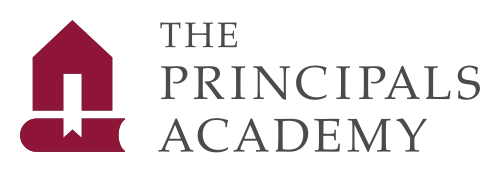We naturally associate holidays with summer. A three-week winter break is a much-needed blessing for teachers and learners.
Now the challenge is to reboot a positive teaching and learning mindset.
It doesn’t happen automatically; like your surgeon you have to have a detailed and internal knowledge of your patient: your teachers must be just as ready; you carefully envision the procedure; you focus totally; zone in and PERFORM. You know my mantra – at your best.
The surgeon may have three very different operations today – a knee replacement, a shoulder arthroscopy and a crushed foot which requires careful reconstruction. That’s how different a teacher’s approach to methodology and necessary interventions may be from Gr 1 to Gr 4, Gr 7 and, obviously, to Gr 12.
Just as the surgeon’s reputation is earned, consolidated and recommended, so teachers should enjoy the total trust of their colleagues, learners and their parents. Just imagine being the patient of a surgeon whose standards are not world class.
The test results are in, the learners’ individual and collective scores over two terms or a few years are available in various forms – EGRA, systemics, progress over more than one quarter and the general marking profile of all subjects in the May/June assessments.
Gr 1 is the teacher’s equivalent of neonatal intensive care with live data, permanent individual attention and regular collaborative monitoring. After two terms, Gr 1s should be on track to be reading simple stories by November when they are due to be discharged. Who are the most seriously vulnerable learners; how many of them: what needs to be done to give them an early second chance to become healthy learners who will survive and thrive and; how will they be monitored? As a principal, team and teachers – we cannot lose these ‘patients’. They are too precious.
Gr 4 is often when learners’ ’health’ is under threat with the risk factors being a possible change in LoLT, concept-based subject teaching, increased homework, more structure, tests and written exams, individual study and research, etc.
The Gr 7s will, in most schools, score a 100% pass rate in December. How much of that is because the best teachers teach Gr 7? How much effort has gone into making the first year of the Senior Phase a springboard for success in high school? There is national concern about both the general unreadiness of primary school learners and the inflated and inconsistent (from school to school) percentages reflected on reports which accompany applications to high school.
Grade 12, with fewer than 40 teaching days left, are in and out of the casualty ward. They all need to be triaged by someone with expert technical knowledge of matric vital signs. Make sure the whole Gr 12 team knows those who are in the following categories: those who require on-going support to better their best; those close enough to a bachelor pass to be shown exactly what they need; those who need weekly observation and possible re-assessment in a few weeks.
Error analysis is an important part of systemic testing, but it should be every teacher’s duty to study the errors in learners’ quarterly assessment with a view to finding both explanations for the errors and trying to eliminate as many as possible. Ask teachers to document this succinctly and make a point to discuss when popping in to grade meetings.\
Interventions are a critical element in a teaching year as teachers discover disparities and as they learn from on-going assessment. Be sure, however, to implement interventions where the learners are, rather than just revising a topic. Surgeons are intervention experts and teachers should be, too. Consider insightful keyhole surgery that fixes the glaring error identified in the exam. Careful interventions in the Foundation Phase, especially at this time of the Gr 1 year, are in effect, highly effective preventative care. They save lives.
As educators, we are all salaried and, mostly, covered by GEMS for timely surgery. The majority of our learners are not so lucky. When those vital signs are dangerous, they rely wholeheartedly on expert, caring and committed teachers. Their future educational health is reliant on a principal who takes responsibility for teaching and learning, and for teachers who are accountable to the learners they serve.
As we start a new term (preferably on day one or before) the principal and team should bring a number of key priorities into focus. Approaching the issues on a grade basis necessitates meaningful discussion and decision-making in grade meetings, thus including every single teacher.
I hope that my health analogy helps you to feel a little better about starting school next week.
Till next time.
Paul
Coach/Mentor
The Principals Academy Trust
No: 10/24
05 July 2024
